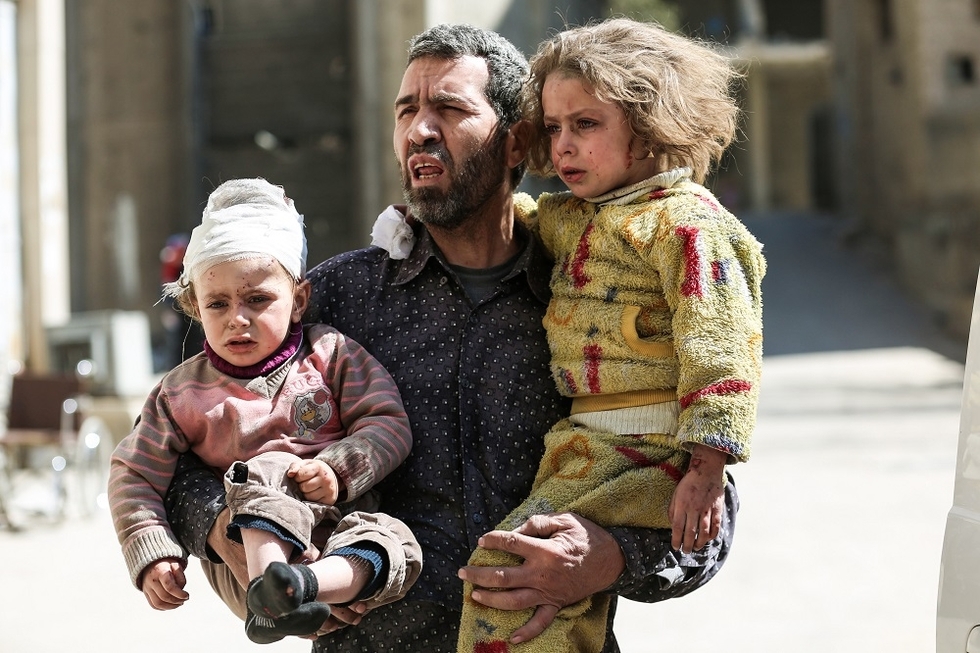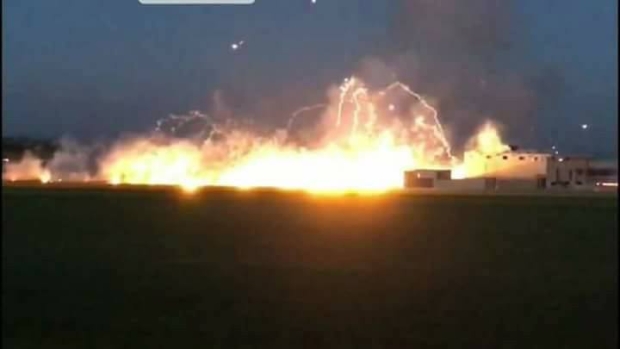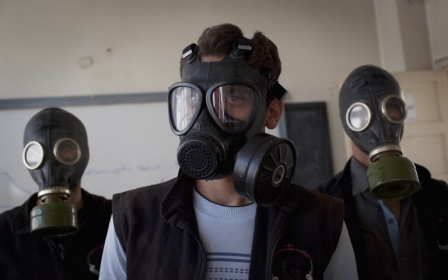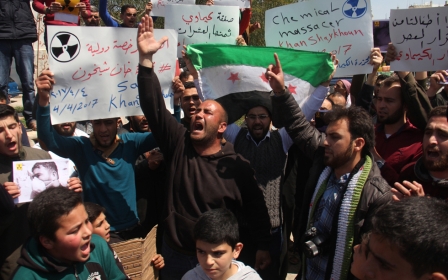'We want anyone to get that bastard': Assad escalates air war after gas attack

Russian and Syrian government strikes have increased by 20 percent in the week since the US hit a Syrian air base, according to figures from the Syrian Network for Human Rights (SNHR), with at least 98 civilians killed.
Last Friday, the US struck an airbase in central Syria with 59 Tomahawk cruise missiles in retaliation for a chemical attack on 4 April that killed at least 87 civilians.
That attack, on the Idlib town of Khan Sheikhun, was blamed by the West on Syrian President Bashar al-Assad, but the Syrian government and its Russian ally deny that the attack was carried out by Assad’s forces.
And while the US move has been largely welcomed by Western governments, those in the town are unconvinced anything has changed.
The planes have not left the skies of Khan Sheikhun for one second since the chemical attack
- local resident, anonymous
“The planes have not left the skies of Khan Sheikhun for one second since the chemical attack,” one resident, who asked to remain anonymous, told MEE by phone.
“Listen to the plane now above us, you can hear it, it has not left us since 6am. We have no idea where it will hit next.” The sounds of what appeared to be a warplane were constant during the phone interview.
In the six days since the US military strike, Russian strikes have killed 56 civilians – including 10 children, and eight women – and the Syrian government has killed at least 42 civilians, including 14 children and seven women, according to new figures from the SNHR.
“It is as though we are the ones who are paying for the chemical attack, not the regime and not Russia,” the Khan Sheikhun resident, an internally displaced person originally from Aleppo, added.
Collective punishment
“The continuous bombing of Khan Sheikhun is a collective punishment for the people of the town,” he said.
“Until when must we pay with our homes? Our children? Until when?”
Based on comparisons with previous weeks, the number of air strikes by the Syrian government and allies has increased 20 percent this week, the SNHR figures show, and there has also been at least one chemical attack.
“Over the course of only five days, the Syrian-Russian alliance has killed 98 civilians, and this just what we were able to document. Furthermore, we noticed a rise in the rates of the use of cluster munitions, incendiary weapons, and barrel bombs,” the report said.
White House press secretary Sean Spicer on Monday said that the Syrian government should expect a response from the US, were chemical weapons used again, or barrel bombs dropped.
He later walked back on that latter comment, clarifying that he had meant barrel bombs laden with chlorine, or other chemicals.
Since the US strike on Syria last week, 162 barrel bombs have been dropped by Syrian government helicopters, the report states.
But chemical weapons have also been used again, the report states.
“In a clear challenge to the international community, the Syrian regime… used chemical weapons for a second time in an attack in al Qaboun neighbourhood in the capital Damascus after 72 hours of using the same weapons in Khan Sheikhun.”
The report does not state exactly which gas was used, but rebels and activists have also reported the use of chlorine gas this week in Syria, which is technically not banned under chemical weapons conventions, as it also has commercial uses.
Civil defence members and medics on the ground in Syria told MEE that they are preparing for further chemical attacks by their government and are desperately seeking to secure gas masks for as many civilians as possible.
White phosphorus has also been used by the government in Idlib this week, on at least two occasions, according to Civil Defence members, and the SNHR report.
“If someone hit you with chemical weapons, would you be sad if they were attacked?,” Adel, a local shop owner in Khan Sheikhun asked MEE, sarcastically.
While there is much apprehension on the ground about the US’s true intentions, Adel has kept a sense of humour about the tragedy of the situation.
Chuckling, and summing up many Syrians’ feelings towards the US strike on the Shayrat air base, he said: “We want anyone to get that bastard!”
Additional reporting by Fadel Abdul Ghany
New MEE newsletter: Jerusalem Dispatch
Sign up to get the latest insights and analysis on Israel-Palestine, alongside Turkey Unpacked and other MEE newsletters
Middle East Eye delivers independent and unrivalled coverage and analysis of the Middle East, North Africa and beyond. To learn more about republishing this content and the associated fees, please fill out this form. More about MEE can be found here.





